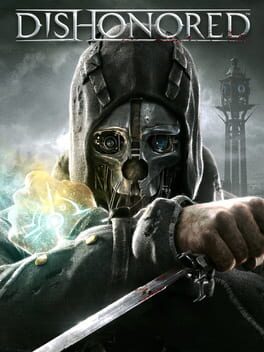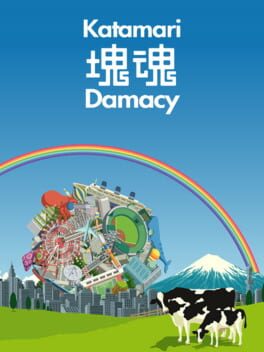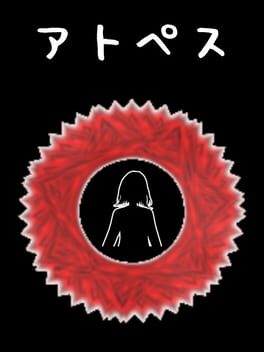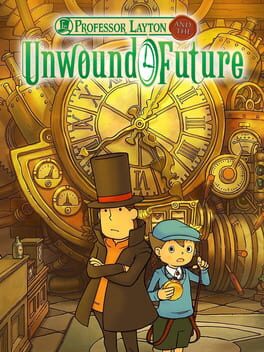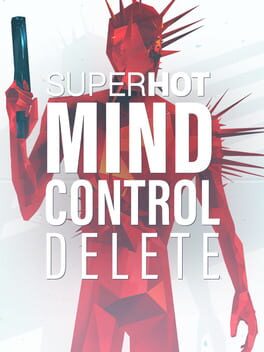merlot
Bio
games are dope!
games are dope!
Badges

Shreked
Found the secret ogre page

GOTY '23
Participated in the 2023 Game of the Year Event

N00b
Played 100+ games
Favorite Games
161
Total Games Played
000
Played in 2024
125
Games Backloggd
Recently Reviewed See More
I think Atopes brings a lot of really neat ideas to the table. The game kind of exists in this meta space, where the developer breaks the fourth wall and points out that you're playing a video game. You have to go through the files to change out Anima's game cartridge, and they constantly have you messing with the innerworkings of your computer to progress. It reminds me a lot of OneShot, which does really similar tricks with text documents and moving your window around.
The games that you play in Atopes are pretty much all charming, but also really simple. There's a cool puzzle platformer called "Rainbow" that I would genuinely play more of if there was a full game. And "Bunny Chronicles" is this short shmup where you progressively get stronger with each time loop. There's some really neat ideas in here. They even have you read through a book and mess around with the links to progress. Everything here is passable to really cool, but nothing overstays its welcome. I wasn't huge on the RPG game at first, but it definitely grew on me towards the end. And I guess I can see the appeal of a game like ";", but it felt a little too math heavy for me.
I don't want to spoil too much about this game, but it's definitely one that I think people should play all the way through. It took me a lot longer than I expected, but I'm happy that I saw it out to the end. There's clearly a lot of passion put into this, and it's really cool that this is totally free.
The games that you play in Atopes are pretty much all charming, but also really simple. There's a cool puzzle platformer called "Rainbow" that I would genuinely play more of if there was a full game. And "Bunny Chronicles" is this short shmup where you progressively get stronger with each time loop. There's some really neat ideas in here. They even have you read through a book and mess around with the links to progress. Everything here is passable to really cool, but nothing overstays its welcome. I wasn't huge on the RPG game at first, but it definitely grew on me towards the end. And I guess I can see the appeal of a game like ";", but it felt a little too math heavy for me.
I don't want to spoil too much about this game, but it's definitely one that I think people should play all the way through. It took me a lot longer than I expected, but I'm happy that I saw it out to the end. There's clearly a lot of passion put into this, and it's really cool that this is totally free.
For the past week, Unwound Future has consumed my thoughts and all of my spare time. This game seriously kicks ass in the story and puzzle department, and I constantly found myself wanting to figure out how it was all going to end.
Layton games utilize the DS perfectly without ever feeling gimmicky. The moment to moment gameplay is point and click, which translates really nicely to the stylus. And being able to draw out or write my thoughts down on the screen works really well and isn't something you can translate to another console with ease. It's nice that they've made mobile ports for these games and all, but man nothing beats playing on the DS.
I think overall the puzzles here present a good amount of challenge, and it definitely takes a bit of time to get used to the game's language or the way it wants you to think. If a puzzle seems too simple, it usually is and there's some other layer that you aren't considering. In the beginning, I was going pretty slow with the puzzles, but for the last couple of chapters I was able to think through them really quickly. It's a pretty nice progression, and it definitely feels good to be able to fly through the late game.
I also thought the writing was really solid. They did a great job at making a unique story with all kinds of twists and turns. I constantly found myself wanting to keep playing to unravel more and more of what was going on, and I never would have guessed how things ended. It reminds me a lot of mystery novels where you as the reader constantly want to figure things out before the other characters. It's also a really heartfelt wrap-up to the initial trilogy and they did a good job of giving Professor Layton some real depth.
Unwound Future definitely does have its shortcomings in a few areas though. Finding every puzzle as you go means interacting with and talking to every NPC. It's never fully obvious when an NPC has a new puzzle for you, and it can be a little bit frustrating when you have to quickly tap through a dialogue you've already seen. It would definitely be nice if there was some kind of indicator of puzzle before you initiate conversation, however I get that this might break the immersion or cause the player to miss certain story elements.
I also think that there's certain sections of the game where the balance between plot and puzzles just isn't totally there. Like in areas like the pagoda it makes sense to have a puzzle gauntlet as you navigate up to the top. But other times they will just flood an unrelated area with puzzles, and I end up getting pretty sidetracked clearing them all out. I don't mind the puzzles, but I think Layton is at its best when it interweaves story beats with the puzzles. If they wanted to add in this many puzzles, I do wish that they would have added another plot beat or some kind of red herring to help space out the puzzles and keep me more engaged.
But these are really just minor nitpicks, and all in all I would highly recommend this game. It's important to know that this game does have a slower pace, and the gameplay is a lot less involved on the technical side. But the writing is super solid and the puzzles are satisfying to solve!
Layton games utilize the DS perfectly without ever feeling gimmicky. The moment to moment gameplay is point and click, which translates really nicely to the stylus. And being able to draw out or write my thoughts down on the screen works really well and isn't something you can translate to another console with ease. It's nice that they've made mobile ports for these games and all, but man nothing beats playing on the DS.
I think overall the puzzles here present a good amount of challenge, and it definitely takes a bit of time to get used to the game's language or the way it wants you to think. If a puzzle seems too simple, it usually is and there's some other layer that you aren't considering. In the beginning, I was going pretty slow with the puzzles, but for the last couple of chapters I was able to think through them really quickly. It's a pretty nice progression, and it definitely feels good to be able to fly through the late game.
I also thought the writing was really solid. They did a great job at making a unique story with all kinds of twists and turns. I constantly found myself wanting to keep playing to unravel more and more of what was going on, and I never would have guessed how things ended. It reminds me a lot of mystery novels where you as the reader constantly want to figure things out before the other characters. It's also a really heartfelt wrap-up to the initial trilogy and they did a good job of giving Professor Layton some real depth.
Unwound Future definitely does have its shortcomings in a few areas though. Finding every puzzle as you go means interacting with and talking to every NPC. It's never fully obvious when an NPC has a new puzzle for you, and it can be a little bit frustrating when you have to quickly tap through a dialogue you've already seen. It would definitely be nice if there was some kind of indicator of puzzle before you initiate conversation, however I get that this might break the immersion or cause the player to miss certain story elements.
I also think that there's certain sections of the game where the balance between plot and puzzles just isn't totally there. Like in areas like the pagoda it makes sense to have a puzzle gauntlet as you navigate up to the top. But other times they will just flood an unrelated area with puzzles, and I end up getting pretty sidetracked clearing them all out. I don't mind the puzzles, but I think Layton is at its best when it interweaves story beats with the puzzles. If they wanted to add in this many puzzles, I do wish that they would have added another plot beat or some kind of red herring to help space out the puzzles and keep me more engaged.
But these are really just minor nitpicks, and all in all I would highly recommend this game. It's important to know that this game does have a slower pace, and the gameplay is a lot less involved on the technical side. But the writing is super solid and the puzzles are satisfying to solve!
I don't think Mind Control Delete is a bad game, but I do think that it lacks a lot of what made SUPERHOT a great game. The core gameplay of SUPERHOT was more puzzle based than anything else. It had quick resets for each level, so it was mostly about learning your sequence of actions and then being a badass. It was simple, but allowed for plenty of opportunity for experimentation and optimization. I think that Mind Control Delete brings a lot to the table, but its change in gameplay design is where it misses the mark.
The original SUPERHOT had a fairly curated base game, with each level having a set number of enemies. One level played out the same way every time in terms of enemy spawn points, spawn times, and weapons. Mind Control Delete is procedurally generated, and thus weapons and throwables are placed everywhere over the map, and enemies can spawn through random doors at any moment. I think that the constant variety is great early on, as it lets the player learn the layouts of many maps in rapid succession. But as time goes on, I find myself feeling more frustrated with this approach, as it only amplifies some of the problems with the original game.
The original SUPERHOT had some issues with field of view. Because the game emphasized using your movement precisely, it was really easy to get tunnel vision on what was in front of you and forget about enemies spawning in behind you. The remedy for this was that the level played out the same each time, so getting better at the game was all about memorizing the level, and when and where each enemy would spawn.
Mind Control Delete encounters this same issue, but it lacks an easy solution. Because the game is a roguelike, you constantly are thrust into levels at random locations and an assortment of enemies are spawned in at random. Because you can never truly know where an enemy might spawn, it is safer for you as a player to stay away from the center of the map and have all enemy entries in sight. This forces you to play in corridors or with your back against the wall, which takes away from the fun of out maneuvering your enemies. You still can play in the middle if you're willing to be constantly turning around, however this causes time to pass in-game meaning that you put yourself at higher risk just by turning your head. They have a prompt for if a melee enemy is behind you, but it's pretty inconsistent with when it triggers and it doesn't help when you're being shot at by someone behind you. It's not the end of the world, and as you get better at the game you learn how to be more equipped with enemies spawning behind you, but it's still frustrating when you die to an enemy that you weren't aware of or isn't telegraphed to you in anyway.
My other major issue with the game is the hacks, which serve as stackable abilities. I love a lot of the ideas that they bring to the table, and they definitely expand a lot on SUPERHOT's gameplay. Ricocheting bullets, exploding throwables, boomerang shurikens. It's all super dope. But I feel like they never really stack in a meaningful way. One of the greatest feelings when playing a game like Binding of Isaac, Risk of Rain 2, or Hades is when your abilities start to stack and feel godly. It doesn't happen all the time, and it takes a lucky run, but it provides an insane level of satisfaction. Mind Control Delete doesn't ever really give you the opportunity to let loose with your abilities.
There's absolutely pairs of abilities that would mesh well together, and it's nice when you get them to line up in one run, but most nodes are so short-lived and only have 3-4 hacks, so you never actually feel like you get to take a fun build far before its reset.
I also think that the game starts to lose its steam as you continue playing. They continue to up the challenge with longer nodes and harder enemies, but things just don't feel as purposeful as they do in the first game. I liked a lot of the optimization of levels in the first game, so it's definitely disappointing that the second game detracts from optimization and focuses more on quick action.
I can see what they were going for here, and it's not a bad game, but I think that the gameplay of SUPERHOT doesn't totally align with the randomness of rogue-likes. It's still fun for a little bit, but it gets repetitive, and the payoff for completing each node isn't really great overall. I think that if they were to take these levels, hack ideas, and new enemy types and put them into a more curated experience like the first SUPERHOT it would be a really great sequel. I can't fault them for wanting to take SUPERHOT somewhere new, I just wish that they had found a way to minimize some of the original games problems.
The original SUPERHOT had a fairly curated base game, with each level having a set number of enemies. One level played out the same way every time in terms of enemy spawn points, spawn times, and weapons. Mind Control Delete is procedurally generated, and thus weapons and throwables are placed everywhere over the map, and enemies can spawn through random doors at any moment. I think that the constant variety is great early on, as it lets the player learn the layouts of many maps in rapid succession. But as time goes on, I find myself feeling more frustrated with this approach, as it only amplifies some of the problems with the original game.
The original SUPERHOT had some issues with field of view. Because the game emphasized using your movement precisely, it was really easy to get tunnel vision on what was in front of you and forget about enemies spawning in behind you. The remedy for this was that the level played out the same each time, so getting better at the game was all about memorizing the level, and when and where each enemy would spawn.
Mind Control Delete encounters this same issue, but it lacks an easy solution. Because the game is a roguelike, you constantly are thrust into levels at random locations and an assortment of enemies are spawned in at random. Because you can never truly know where an enemy might spawn, it is safer for you as a player to stay away from the center of the map and have all enemy entries in sight. This forces you to play in corridors or with your back against the wall, which takes away from the fun of out maneuvering your enemies. You still can play in the middle if you're willing to be constantly turning around, however this causes time to pass in-game meaning that you put yourself at higher risk just by turning your head. They have a prompt for if a melee enemy is behind you, but it's pretty inconsistent with when it triggers and it doesn't help when you're being shot at by someone behind you. It's not the end of the world, and as you get better at the game you learn how to be more equipped with enemies spawning behind you, but it's still frustrating when you die to an enemy that you weren't aware of or isn't telegraphed to you in anyway.
My other major issue with the game is the hacks, which serve as stackable abilities. I love a lot of the ideas that they bring to the table, and they definitely expand a lot on SUPERHOT's gameplay. Ricocheting bullets, exploding throwables, boomerang shurikens. It's all super dope. But I feel like they never really stack in a meaningful way. One of the greatest feelings when playing a game like Binding of Isaac, Risk of Rain 2, or Hades is when your abilities start to stack and feel godly. It doesn't happen all the time, and it takes a lucky run, but it provides an insane level of satisfaction. Mind Control Delete doesn't ever really give you the opportunity to let loose with your abilities.
There's absolutely pairs of abilities that would mesh well together, and it's nice when you get them to line up in one run, but most nodes are so short-lived and only have 3-4 hacks, so you never actually feel like you get to take a fun build far before its reset.
I also think that the game starts to lose its steam as you continue playing. They continue to up the challenge with longer nodes and harder enemies, but things just don't feel as purposeful as they do in the first game. I liked a lot of the optimization of levels in the first game, so it's definitely disappointing that the second game detracts from optimization and focuses more on quick action.
I can see what they were going for here, and it's not a bad game, but I think that the gameplay of SUPERHOT doesn't totally align with the randomness of rogue-likes. It's still fun for a little bit, but it gets repetitive, and the payoff for completing each node isn't really great overall. I think that if they were to take these levels, hack ideas, and new enemy types and put them into a more curated experience like the first SUPERHOT it would be a really great sequel. I can't fault them for wanting to take SUPERHOT somewhere new, I just wish that they had found a way to minimize some of the original games problems.
